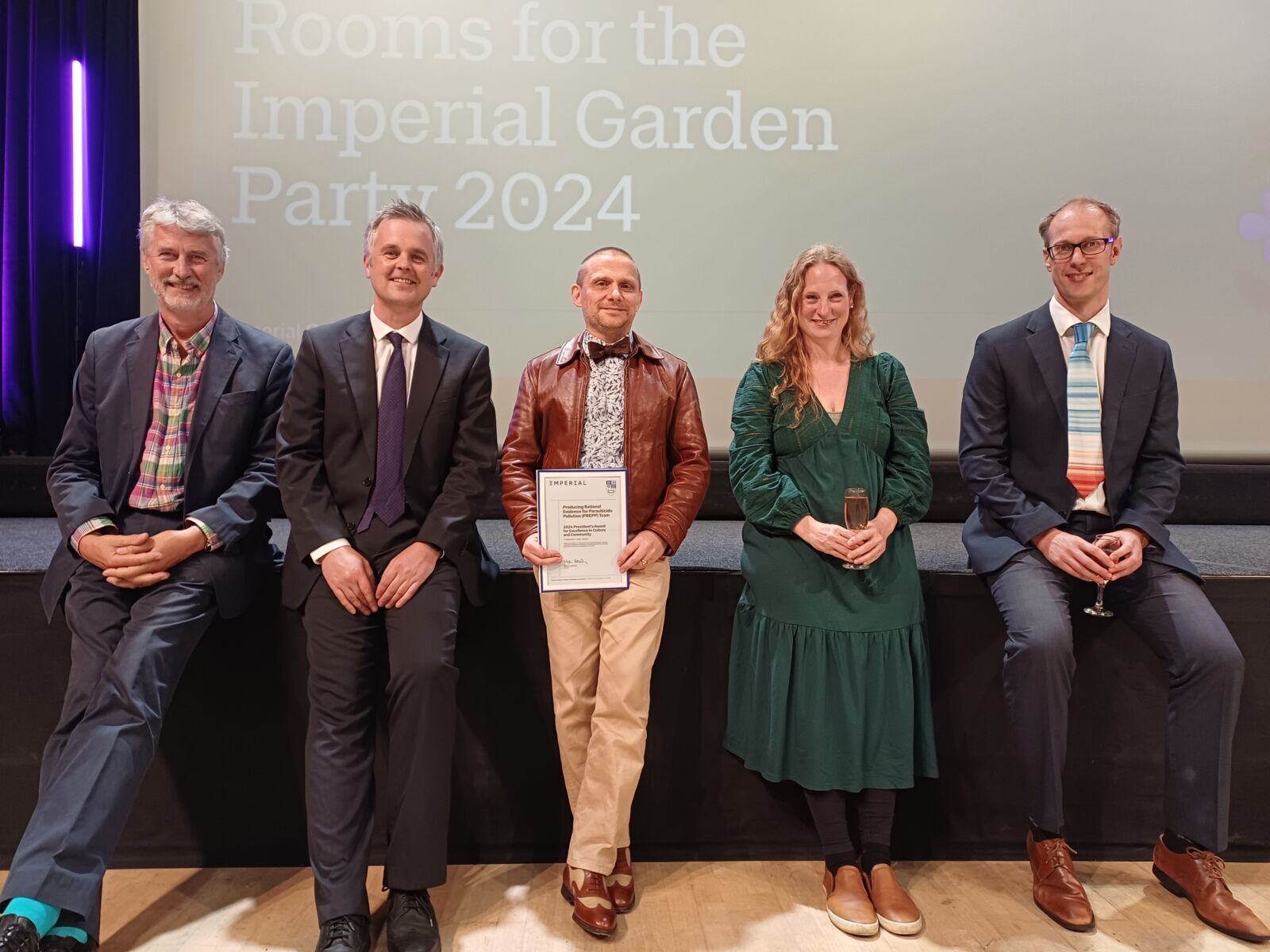Research on environmental impacts of pet parasiticides receives award
Research group 'PREPP' investigating the environmental risks of pet parasiticides receives President’s Award at Imperial College London
Vet Sustain
An interdisciplinary research group whose collaborative work has shown the far-reaching negative environmental risks of parasiticides used on household pets has received the Imperial College President’s Award for their work.
The award, in the category of Excellence in Culture and Community, follows high-profile coverage of PREPP (Producing Rational Evidence for Parasiticide Prescription) research which showed that common parasiticides used to treat flea infections have contributed to extensive river water contamination. Research by the PREPP group, which brings together researchers from diverse backgrounds at institutions including Imperial College London, the University of Sussex, and Birbeck, the University of London, has identified urban wastewater discharges containing flea treatment residues as the primary source of widespread fipronil and imidacloprid contamination in waterways. The group has also provided evidence that this pollution is of high risk to critical aquatic invertebrates which clean our rivers.

Imidacloprid has been banned for outdoor use in the EU and UK since 2018 due to its negative impact on bees. The work of PREPP evaluates the pathways, impacts and potential solutions to limit the environmental risks posed by common parasiticides. Several recommendations to reduce these risks were made in their March 2023 briefing paper.
The group advocate for a significant reduction in the use of common pet parasiticides, in particular arguing against the use of routine preventative flea medication. They recommend strengthening the regulatory framework including the risk assessment for pet parasiticides, improving information for users, better product labelling on how to correctly use and dispose of products, advice on alternative methods of parasite control such as monitoring instead of routine prevention and raising awareness of parasticide use as an environmental risk.
Publications
The group’s work has received mainstream media coverage in The Guardian, BBC News and The Times, as well as veterinary publications such as the Vet Times (in March 2023, January 2024 and February 2024).
Preston-Allen, R. G. G., Albini, D., Barron, L., Collins, T., Duncalf-Youngson, H., Jackson, M., Johnson, A., Perkins, R., Prentis, A., Spurgeon, D., Stasik, N., & Wells, C. (2023). Are urban areas hotspots for pollution from pet parasiticides ? In Grantham Institute (Issue Briefing note No 15). https://www.imperial.ac.uk/grantham/publications/are-urban-areas-hotspots-for-pollution-from-pet-parasiticides.php
Perkins, R., Barron, L., Glauser, G., Whitehead, M., Woodward, G., & Goulson, D. (2024). Down-The-Drain Pathways for Fipronil and Imidacloprid Applied as Spot-on Parasiticides to Dogs: Estimating Aquatic Pollution. Science of the Total Environment, 917(January). https://doi.org/10.1016/j.scitotenv.2024.170175
Duncalf-Youngson, H. et al., Pet treatments could be harming freshwater life, Freshwater Biological Association, (2024). Pet treatments could be harming freshwater life — Freshwater Biological Association (fba.org.uk)